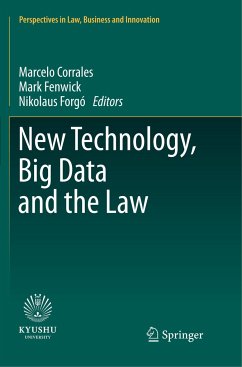
Sui Generis Intellectual Property Protection
Comparison of EU and U.S. Regulatory Approaches
Versandkostenfrei!
Versandfertig in 6-10 Tagen
106,99 €
inkl. MwSt.
Weitere Ausgaben:

PAYBACK Punkte
53 °P sammeln!
The standard forms of intellectual property protection, namely, copyright, patents, trademarks and trade secrets, have a long history and are well regulated in the legislative systems of most jurisdictions. However, there are specific kinds of subject matter that, due to their characteristics, cannot be adequately protected by these standard forms of intellectual property instruments. At the same time, these categories of subject matter require legal protection in order to ensure the balance between the public's access to these creations and the creators' rights. For these reasons, many jurisd...
The standard forms of intellectual property protection, namely, copyright, patents, trademarks and trade secrets, have a long history and are well regulated in the legislative systems of most jurisdictions. However, there are specific kinds of subject matter that, due to their characteristics, cannot be adequately protected by these standard forms of intellectual property instruments. At the same time, these categories of subject matter require legal protection in order to ensure the balance between the public's access to these creations and the creators' rights. For these reasons, many jurisdictions introduce a special form of intellectual property protection, namely, sui generis regime, i.e., intellectual property legal regime "of its own kind", designed to serve the specific needs of a particular subject matter. This book analyzes the intellectual property protection regimes in the EU and the U.S. available for three categories of subject matter that are often considered as requiring sui generis protection, namely, databases, designs and plant varieties. One of the main objectives is to evaluate whether the chosen subject matter in fact requires sui generis intellectual property protection and whether the introduced sui generis regimes have proved to be successful over time. The final chapter of this book analyses the perspectives of sui generis intellectual property protection for works generated by AI systems. This volume offers a comprehensive analysis of sui generis intellectual property rights and will be a key source for both scholars and practitioners with an interest in intellectual property law.












